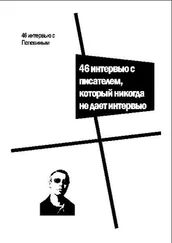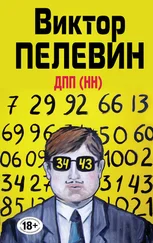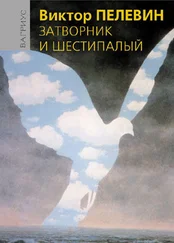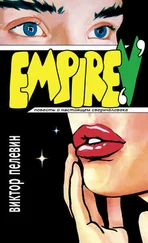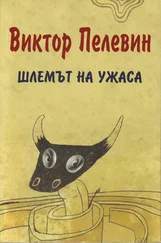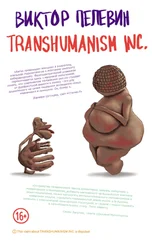Виктор Пелевин - Buddha's Little Finger
Здесь есть возможность читать онлайн «Виктор Пелевин - Buddha's Little Finger» весь текст электронной книги совершенно бесплатно (целиком полную версию без сокращений). В некоторых случаях можно слушать аудио, скачать через торрент в формате fb2 и присутствует краткое содержание. Жанр: Современная проза, на английском языке. Описание произведения, (предисловие) а так же отзывы посетителей доступны на портале библиотеки ЛибКат.
- Название:Buddha's Little Finger
- Автор:
- Жанр:
- Год:неизвестен
- ISBN:нет данных
- Рейтинг книги:5 / 5. Голосов: 1
-
Избранное:Добавить в избранное
- Отзывы:
-
Ваша оценка:
- 100
- 1
- 2
- 3
- 4
- 5
Buddha's Little Finger: краткое содержание, описание и аннотация
Предлагаем к чтению аннотацию, описание, краткое содержание или предисловие (зависит от того, что написал сам автор книги «Buddha's Little Finger»). Если вы не нашли необходимую информацию о книге — напишите в комментариях, мы постараемся отыскать её.
Buddha's Little Finger — читать онлайн бесплатно полную книгу (весь текст) целиком
Ниже представлен текст книги, разбитый по страницам. Система сохранения места последней прочитанной страницы, позволяет с удобством читать онлайн бесплатно книгу «Buddha's Little Finger», без необходимости каждый раз заново искать на чём Вы остановились. Поставьте закладку, и сможете в любой момент перейти на страницу, на которой закончили чтение.
Интервал:
Закладка:
I nodded.
‘For long?’
‘About two years now,’ I replied.
Furmanov looked over at Chapaev. ‘An eagle,’ he said, ‘but he has to be watched. They s-s-say he often gets c-c-carried away. But the s-s-soldiers love him. They understand him.’
He nodded at the silent crowd above which Chapaev’s words were drifting. ‘You’ve got to go, no two ways round it, and here’s my hand-deed to you as a commander on the nail… and now the commissar’s going to have a word.’
Chapaev moved back from the railing.
‘Your turn, Petka,’ he ordered in a loud voice.
I walked over to the railing.
It was painful to look at those men and imagine the dark maze woven by the pathways of their fates. They had been deceived since childhood, and in essence nothing had (hanged for them because now they were simply being deceived in a different fashion, but the crude and insulting primitiveness of these deceptions - the old and the new - was genuinely inhuman. The feelings and thoughts of the men standing in the square were as squalid as the rags they wore, and they were even being seen off to their deaths with a stupid charade played out by people who were entirely unconnected to them. But then, I thought, was my situation really any different? If I, just like them, am unable to understand, or even worse, merely imagine I understand the nature of the forces which control my life when I do not, then how am I any better than a drunken proletarian sent off to die for the word Internationalism’? Because I have read Gogol, Hegel and even Herzen? The whole thing was merely a bad joke.
However, I had to say something.
‘Comrade workers!’ I shouted. ‘Your commissar comrade Furmanov has asked me to be as brief as I can, because boarding is due to begin any moment. I think that we shall have time to talk later, but now let me simply tell you of the flame that is blazing here in my heart. Today, comrades, I saw Lenin! Hoorah!’
A long roar rumbled across the square. When the noise had died down, I said:
‘And now, comrades, here with his parting words is comrade Furmanov!’
Furmanov nodded gratefully to me and stepped towards the railing. Chapaev was laughing and twirling his moustache as he talked about something with the officer in the heaver coat. Seeing me approach, he clapped the officer on the shoulder, nodded to the others and climbed down the steps from the tribune. Furmanov began speaking:
‘Comrades! We have only a few minutes left here. The final chimes will sound, and we shall set sail for that mighty shore of marble - for those cliffs on which we shall establish our bridgehead-’
He spoke now without stammering, intoning smoothly.
We made our way through the ranks of workers which parted before us - my sympathy for them almost evaporated when I saw them at close quarters - and set off towards the station. Chapaev walked quickly, and I found it hard to keep up with him. Sometimes, as he responded to greetings from someone, he would raise a yellow cuff briefly to his astrakhan hat. To be on the safe side, I began copying this gesture and had soon mastered it so well that I actually began to feel quite at home among all these super-neanderthals scurrying about the station.
On reaching the edge of the platform, we jumped down on to the frozen earth. Ahead of us on the shunting lines and sidings stood a labyrinth of snow-covered carriages. There were tired people watching us from every side; the grimace of despair repeated on all of their faces seemed to form them into some new race of men.
I turned to Chapaev and asked: ‘Can you explain to me the meaning of «hand-deed»?’
‘What?’ Chapaev asked with a frown.
‘«Hand-deed»’, I repeated.
‘Where did you hear that?’
‘If I am not mistaken, only a moment ago you were speaking from the platform on the subject of your commander’s hand-deed.’
‘Ah,’ said Chapaev with a smile, ‘so that’s what you are talking about. You know, Pyotr, when one has to address the masses, it is quite unimportant whether one understands the words that one speaks. What is important is that other people understand them. One has simply to reflect the expectations of the crowd. Some achieve this by studying the language in which the masses speak, but I prefer to act in a more direct fashion. In other words, if you wish to learn what «hand-deed» means, then it is not me you should be asking, but the men standing back there on the square.’
I thought I understood what he was saying. Indeed, I had long before come to very similar conclusions myself, only in regard to conversations about art, which had always depressed me with their monotony and pointlessness. Since I was obliged by virtue of my activities to meet large numbers of chronic imbeciles from literary circles, I had deliberately cultivated the ability to participate in their discussions without paying any particular attention to what was being spoken about, simply by juggling with such absurd words as ‘realism’ ind ‘theurgy’, or even ‘theosophical value’. In Chapaev’s terminology this was learning the language in which the masses speak. However, I realized that he himself did not even burden himself with the knowledge of the words which he pronounced; of course, it was not clear to me how he was able to do this. Perhaps, having fallen into some kind of trance, he could sense the vibrations of anticipation projected by the crowd and somehow weave them into a pattern which it understood.
We walked the rest of the way in silence. Chapaev led me on, further and further; two or three times we stooped to dive under empty, lifeless trains. It was quiet, with no sound except the occasional frenzied whistling of steam locomotives in the distance. Eventually we halted beside a train which included an armoured carriage in its complement. The chimney above the roof of the carriage was smoking cosily, and an impressive Bolshevik with an oak-stained Asiatic face was standing on guard at the door - for some reason I immediately dubbed him a Bashkir.
We walked past the saluting Bashkir, climbed into the carriage and found ourselves in a short corridor. Chapaev nodded towards one of the doors.
‘That is your compartment,’ he said, taking his watch out of his pocket. ‘With your permission, I shall leave you for a short while, I must issue a few instructions. They have to couple us to the locomotive and the carnages with the weavers.’
‘I did not like the look of their commissar,’ I said, ‘that Furmanov. He and I may not be able to work well together in the future.’
‘Don’t go worrying your head about things that have no connection with the present,’ said Chapaev. ‘You have yet to reach this future of which you speak. Perhaps you will reach a future in which there will be no Furmanov - or, perhaps you might even reach a future in which there will be no you.’
I said nothing, not knowing what reply to make to his strange words.
‘Make yourself comfortable and rest,’ he said. ‘We shall meet again at supper.’
I was astounded by the absolutely peaceful atmosphere of the compartment; the window in the armoured wall was tightly curtained, and there was a vase of carnations standing on the small table. I felt absolutely exhausted; once I had sat down on the divan, it was some time before I felt able to move again Then I remembered that I had not washed for several days, and I went out into the corridor. Amazingly enough, the very first door that I opened led into the shower room and toilet.
I took a hot shower with immense pleasure (the water must have been heated by a coal stove) and returned to my compartment to discover that the bed had been made and a glass of strong tea was waiting for me on the table. Having drunk my fill, I slumped on to the divan and almost immediately fell asleep, intoxicated by the long-forgotten scent of stiffly starched sheets.
Читать дальшеИнтервал:
Закладка:
Похожие книги на «Buddha's Little Finger»
Представляем Вашему вниманию похожие книги на «Buddha's Little Finger» списком для выбора. Мы отобрали схожую по названию и смыслу литературу в надежде предоставить читателям больше вариантов отыскать новые, интересные, ещё непрочитанные произведения.
Обсуждение, отзывы о книге «Buddha's Little Finger» и просто собственные мнения читателей. Оставьте ваши комментарии, напишите, что Вы думаете о произведении, его смысле или главных героях. Укажите что конкретно понравилось, а что нет, и почему Вы так считаете.

